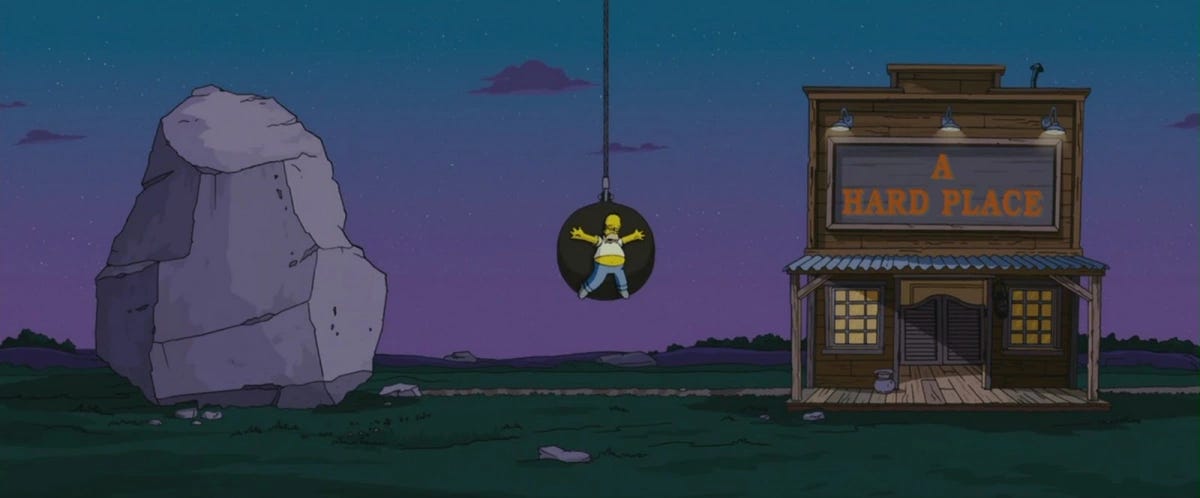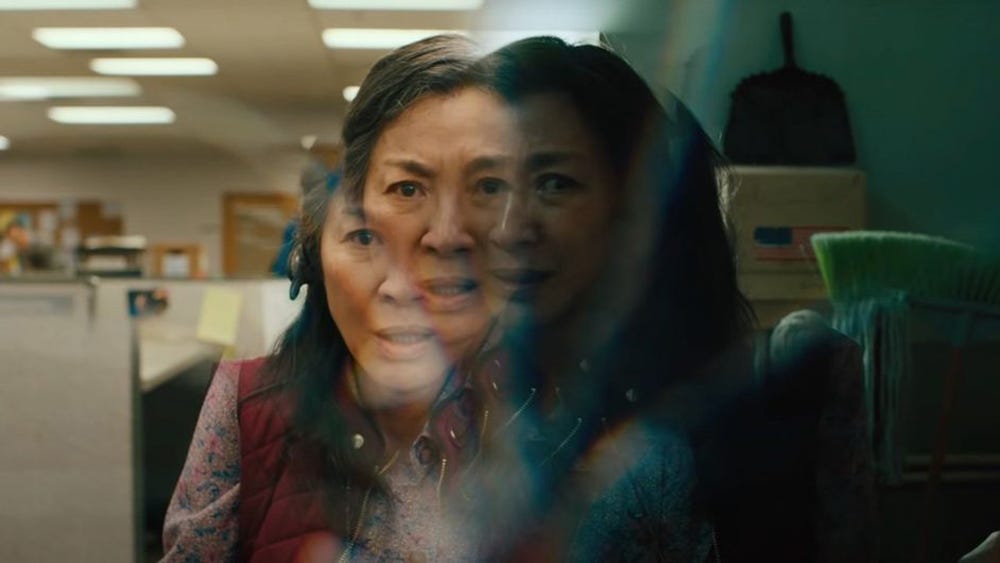If the mind is a “hard drive”, I’m running a program called “Occam’s Razor”, And where our brains are wired to rationalize, mine is set on overdrive. This way of being is unsustainable, especially when we go past our limits to a place called “irrationality”. What do we do when we encounter what is irreconcilable? And when we must live on with a constant reminder of the fact of inner incongruency? Are these series of wounds permanent ones? Call it “acquiesced cognitive dissonance”, it is part of the cross I have to bear.
When I dramatize this feeling, I visualize myself wading in a perpetual state of being just above water, drowning in confusion. I’d long hoped for some greater being to pull me to safety, but as of late, I have let go of that hope. And worst of all, my instincts won’t let me sink and I must continue laboriously paddling out of faith in something here, not somewhere else, to grant me solace. And often I wonder, as David Byrne exuberantly asks, “Well, how did I get here?” More on that later.
This position of displaced oscillation between what I envision to be my supreme inner binary brings up a whole tribe of images, ones that temporarily help me justify these feelings. I think of a place where traumas, lives, histories, people, lyrics, quotes, aphorisms, caricatures converge. Maybe I do contain multitudes. But I cannot find any place in that vast geography of selves where I can confidently and consistently return to. Along those lines, I think of a vagabond or weary traveler. Or a gleaner who moves surreptitiously, one that I imagine scavenges and lives out of direct sight.
Thomas Nagel describes a similar feeling where “the absurdity of our situation derives not from a collision between our expectations and the world, but from a collision within ourselves.” And within those multitudes is a coping mechanism of disbelief in the significance of “the self”. Personal identity can act as a useful fiction to some, where it binds some aspects together, but to surrender to that limited essence is to compromise the entirety of it all. “- What then, does one know of the You? - Only everything. For one no longer knows particulars.” That’s Martin Buber. Identity is not a one size fits all.
Suppression for me comes in a nihilist perception of sub specie aeternitatis. “Insert whatever allegory or scientific fact makes you feel small here.” And rendering that inescapable fact of insignificance is a temporary suppression of the need for a consistent, observable essence; or as poet Stanley Kunitz describes, where “some principle of being abides, from which I struggle not to stray.” Sub specie aeternitatis can make seemingly vast, irrational territories within me feel less noisy - more digestible.
But perhaps the practice of temporarily stepping into a view of sub specie aeternitatis is another way of rational expediency. Convincing myself of my insignificance can seem the most acceptable rationally when I feel I cannot handle contradiction any longer; but therein lies another series of collisions when one participates in the “grand individualist western echochamber of naivete™”.
And to rein in the focus some more, this posture could be applicable to the question of whether certain acts in my pursuit of self-seriousness, guided by feelings of angst and resistance, are just some repeated, youthful cliche. What if the average of all my actions is just some small crest within the innumerable wavelengths we call history? That maybe this has already happened to everybody, all the time. Am I just another carbon copy of what has preceded and will succeed me to the end of civilization? Is what I’m experiencing just the “same as it ever was”? Why must I dwell on my significance and insignificance? See how I’m contradicting myself again?
Despite all of this, I think the work lies in maintaining the some underlying fire underneath that crest, even when conditions inevitably change. I rely on the genius of others to help me stoke that fire. The work could also lie in resisting the rational expediency that we collectively desire, and to learn some sort of curious patience for the mysteries of the present. I would also like to continue the ongoing dialogue with those who have shared similar feelings in the past and whoever is yet to come. Film director Kogonada describes this kind of relationship as “where you feel lonely and then you suddenly engage with a person who resonates; they’ve been asking the same questions you’ve been asking.” We probably aren’t meant to bear these questions alone. I’d like to convince myself of that. That too, is the work. I hope to look back one day and see a “geography of scars”.
This is only the beginning. I’m going to expand on this hopefully soon, I got a lot more to say, a lot more questions than answers. But for now, here is someone and a song that I feel is asking the same questions:
On another note, I want this place (Five Lane Divers) to be where a process of excavation and gradual awareness happens. So please excuse me, if I tend to repeat certain concepts, words, or phrases. Part of the process is in applying these feelings and ideas to differing contexts and responding to whatever may rise to the surface. To honor all of and notice where my wide interests intersect. In another, more therapeutic way, writing for me is mantra repeating writ large. Similar to how I like to try out new vocabulary or aphorisms in conversations to enact my version of active recall and to see how they fit. In the same interview as quoted earlier, Kogonada affectionately describes a similar process of continual pursuit in referencing auteurs Yasujiro Ozu and Alfred Hitchcock:
BLVR: I had a film professor, a Hitchcock scholar, who said that every Hitchcock film is the same film, made again in a slightly different, hopefully more perfect way. Ozu said something similar about his own work: that he was painting the same rose over and over. Do you believe that achieving something masterful requires many iterations of singular focus?
K: This goes back to your earlier conversation about good conversation. Again, it’s all about the pursuit of something. There are highly skilled technicians who can make any kind of film. Give them a script and they will change style and form to fit the content. And that’s fine and acceptable. They don’t necessarily obsess over form. But directors that obsessively return to a distinct form and approach, they’re engaging in a larger conversation, a larger pursuit, whether they know it or not, which interests me a great deal. I’ve actually wanted to make a feature-length essay on Hitchcock and Ozu because Hitchcock used to say that all he wants to do is make a slice of cake. That film should be like a slice of cake. A treat. And he always gives this story about a mother who has to wash dishes, and how the last thing she wants to do is go to the movie theater and watch a movie of a woman washing dishes. This was his reaction to neorealism. He just wanted to make a slice of cake. Of course, what Ozu famously said was that he wanted to make tofu. They both made films on their own empirical islands: one was Japan, one was England. And they both started in the silent era. In the last Sight & Sound poll [of the greatest directors] they’re ranked one and four. And I just think it’s fascinating. They were both obsessed in their own ways. But whereas Hitchcock wanted to make cake, something that would shock us outside of the mundanity of life, Ozu wanted to make tofu—the opposite of cake, something bland. I’d love to make that film. I’d call it Cake and Tofu.
Hope some of this made sense. Thank you, for being here.
AH



